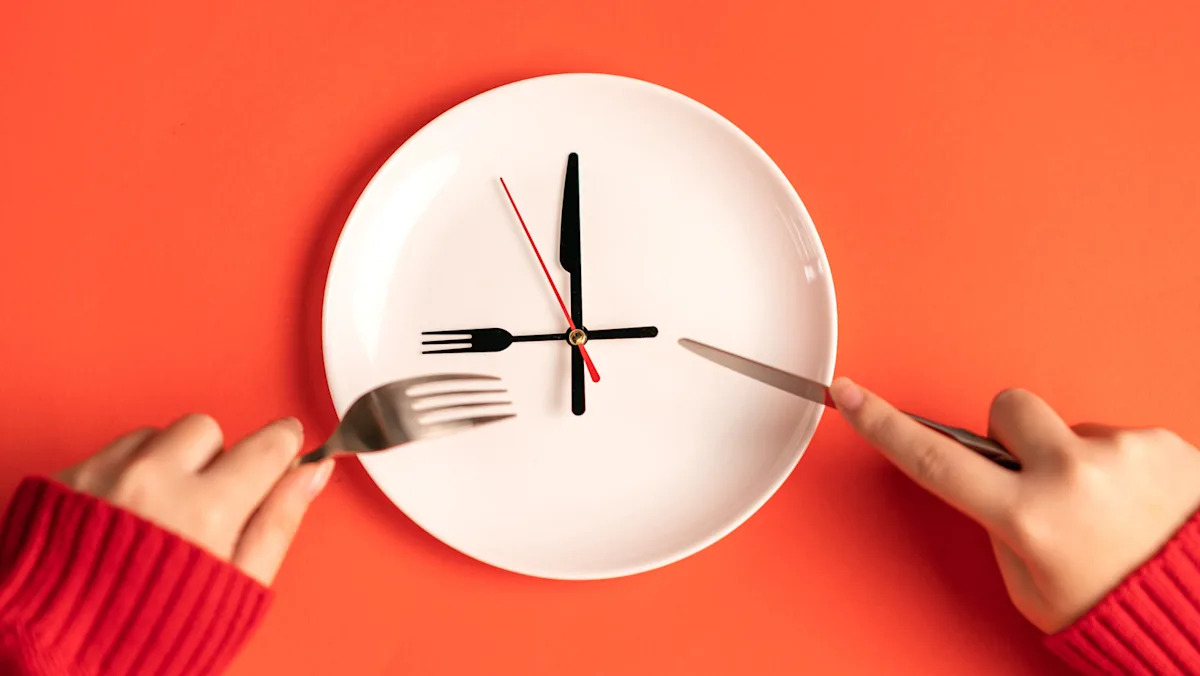
The Absolute Best Time To Eat Dinner, According To Science
What time actually means “dinnertime” to you? It’s different for all of us and may even differ from day to day. A myriad of factors impact when we eat, from our work schedules to our social calendars and those of our family members. Whether we’re eating out, cooking at home, or ordering takeout also can affect our plans. There’s also personal preference: Tasting Table surveyed readers on the preferred time to eat dinner, and answers ranged from 5 p.m. to 9 p.m. But the question remains, is there, in fact, a time we should be aiming for, and how important is a consistent time to our digestion and other health factors? To find out, we consulted an expert, Lena Bakovic, MS, RDN, CNSC at Live It Up.
“In my opinion, dinner should ideally be consumed at least two hours prior to bedtime (and sometimes slightly longer, depending on the individual),” Bakovic says. “This strategic timing aids with providing our digestive systems sufficient time to digest and absorb nutrients, while also helping to prevent symptoms of reflux or negatively impacting sleep.” If your body hasn’t had ample time to digest when you lie down, it could result in stomach pains, heartburn, and acid reflux. Plus, the calories that your body would normally convert into fuel during the day just get stored as fat if you’re about to go to bed. This can lead to weight gain, while acid reflux can accumulate into long-term issues like asthma and cancer.
Read more: 10 Foods Gordon Ramsay Doesn’t Touch
How late is too late for dinner?
Woman eating spaghetti at table – D3sign/Getty Images
That potential indigestion-related discomfort, Bakovic says, “may, in some respects, be due to the metabolic activity required to digest and absorb food.” She explains, “Eating too late can also alter hormonal balance, namely insulin levels, unusually affecting blood sugar ebbs and flows.” Insulin is the hormone that turns sugar into energy; it’s receptive in the morning to get you ready for the day but not so much at night. Hormones that regulate your appetite and your metabolism follow your circadian rhythm, so if you push against this by eating when your body thinks it’s time for bed, the way your body generates energy and feels hungry and full gets thrown off. This could lead to health issues like type 2 diabetes down the line.
However, that doesn’t mean you have to eat at 5 p.m. if you go to bed at 9:30 p.m. “Eating dinner too early can set us up to eat more food later, in larger portions, and in late evenings or close to bedtime,” Bakovic adds. Overcorrecting can just land you back in the position of needing to eat another meal later. The right dinnertime is about balance. This can take dedicated scheduling, but the health benefits are worthwhile. “Generally speaking, smaller and more frequent meals are usually quite easier to digest,” the expert adds, “which can help with stabilizing energy levels.” Flexibility is key in the long run, as we all know the day can get away from us. Have some healthy dinner recipes in mind, especially for nights you get stuck eating late, or look to healthy snack ideas that will keep you satisfied longer.
Want more food knowledge? Sign up to our free newsletter where we’re helping thousands of foodies, like you, become culinary masters, one email at a time.
Read the original article on Tasting Table.
First Appeared on
Source link






